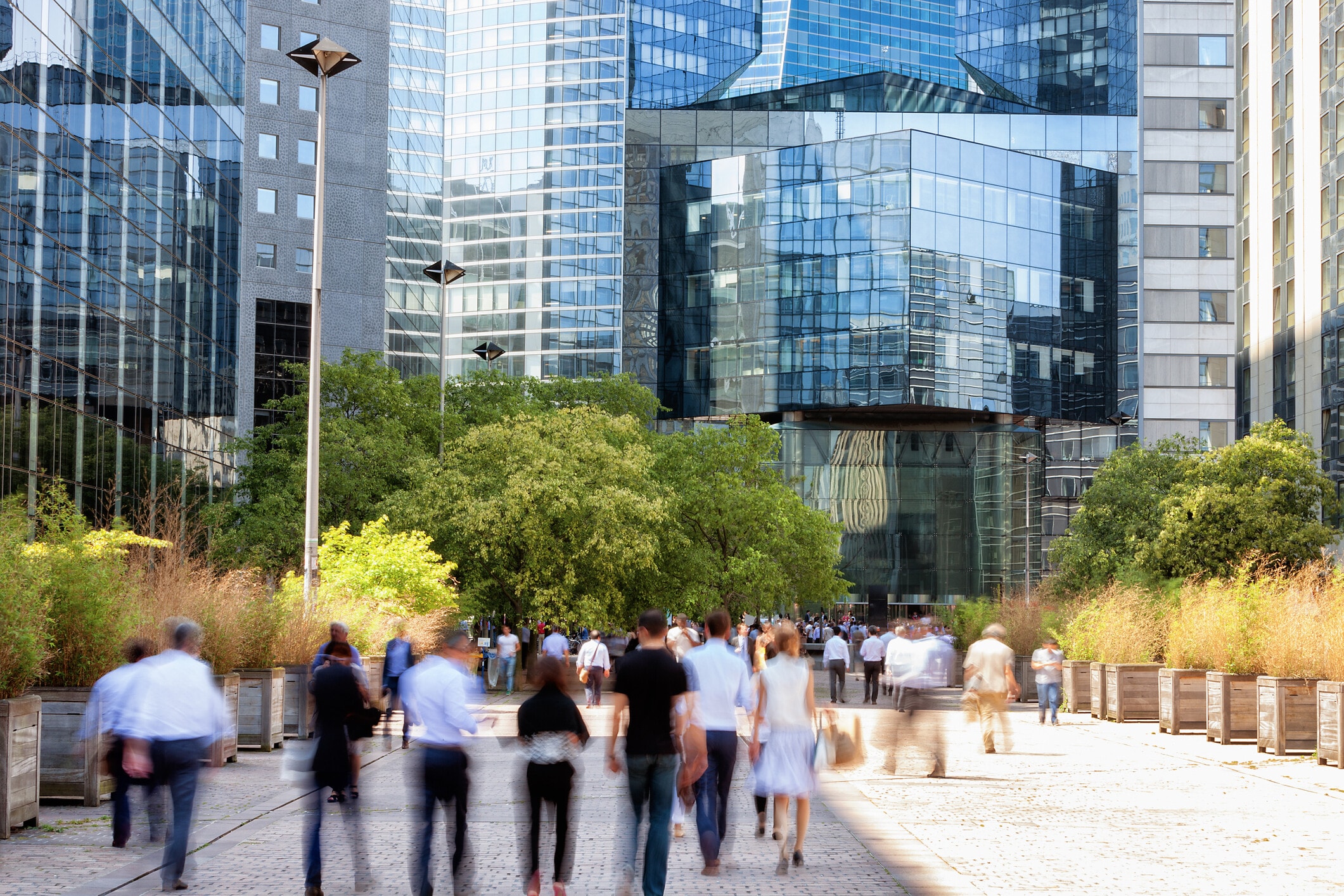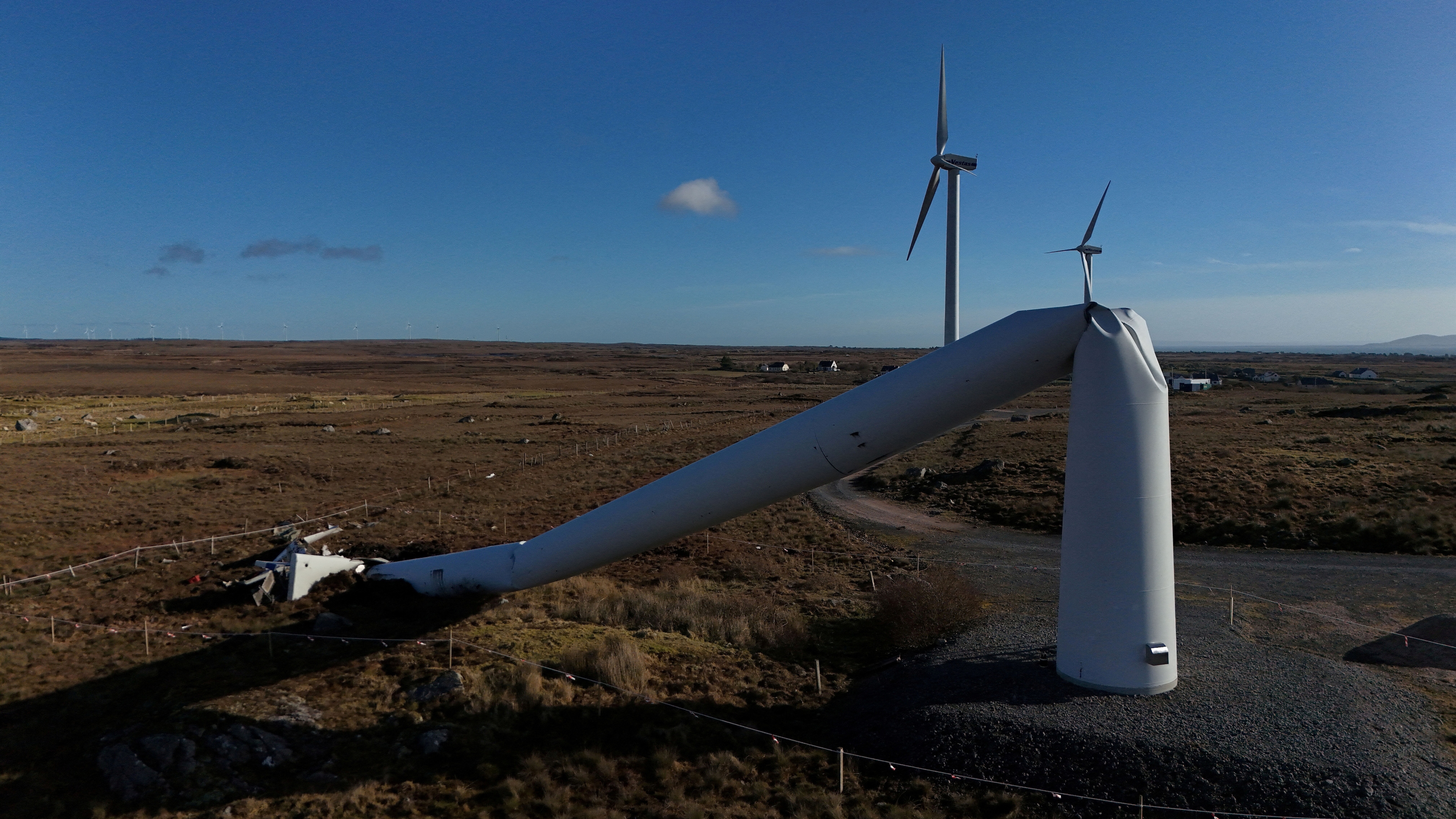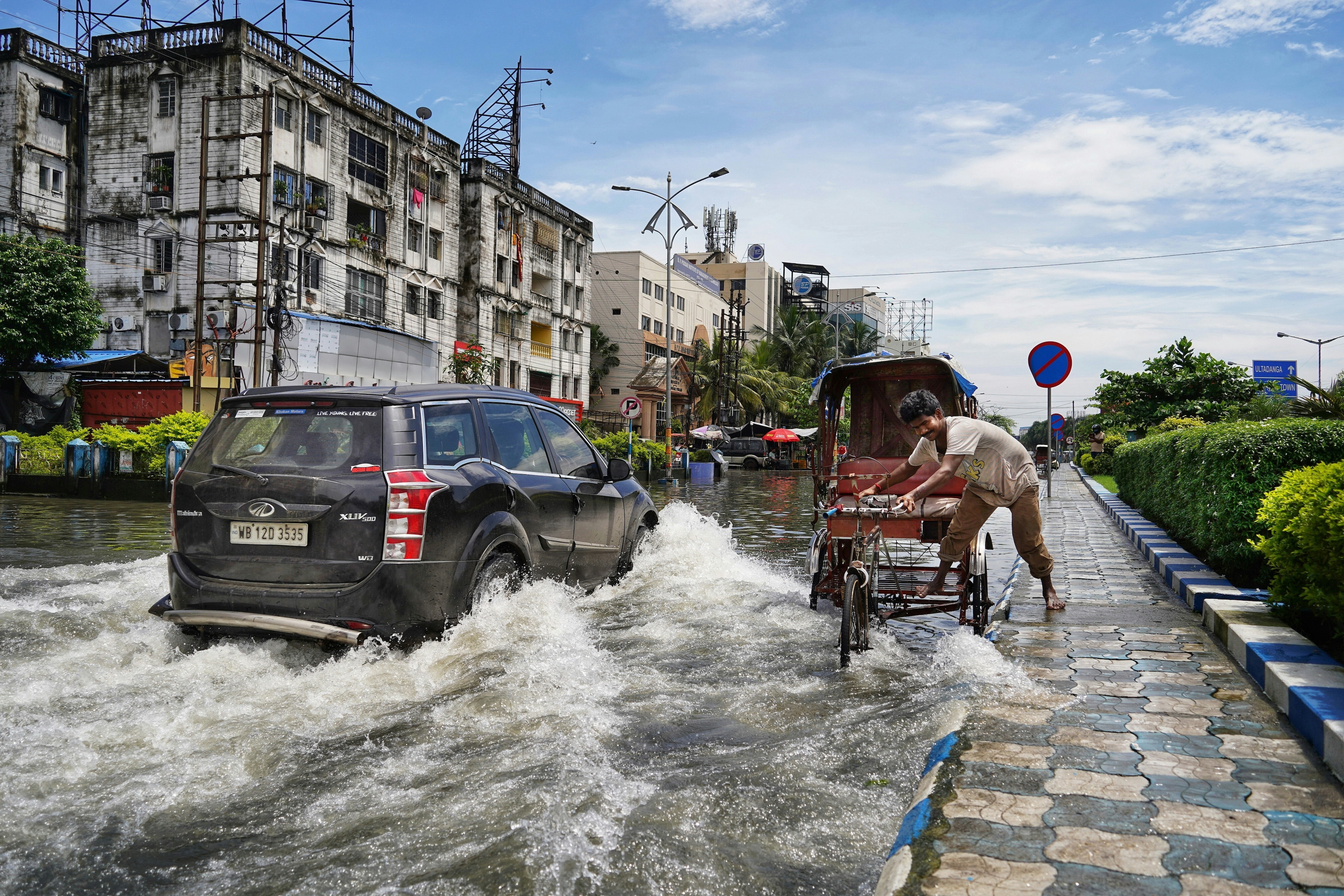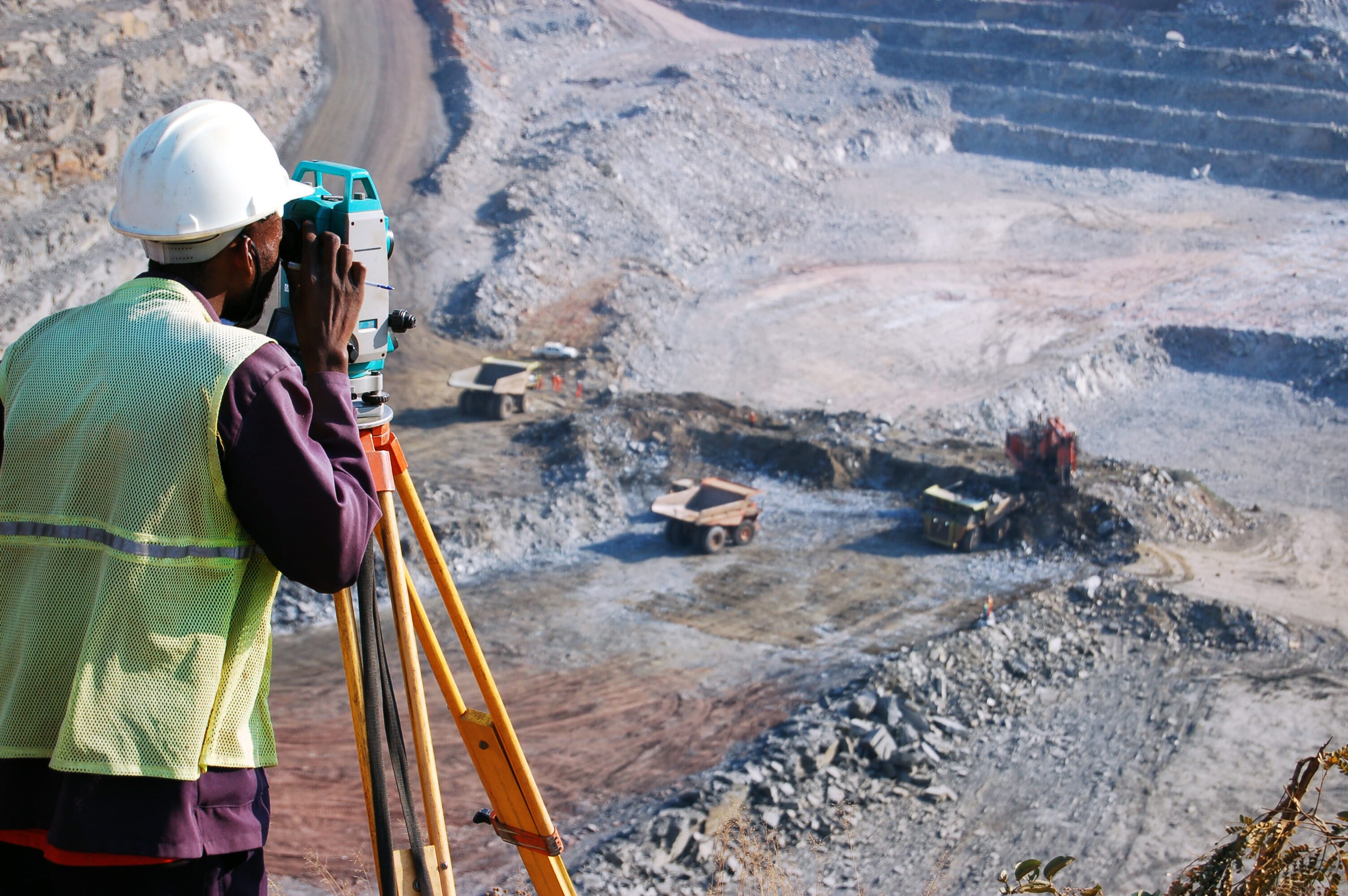Pollution is a risk to people and the planet. Experts examine how we should respond

Air pollution is an urgent global issue, and we should treat it as such.
Image: Unsplash.
- Pollution forms part of the 'triple planetary crisis', along with climate change and biodiversity loss.
- The Global Risks Report outlines the risks associated with pollution in the short to long-term.
- We asked experts from the World Economic Forum how we should respond to those risks.
Environmental risks are no longer perceived a long-term risk, but a daily reality for millions across the world. In this year’s Global Risks Report, we deep-dive on the risks associated with pollution, which over 900 global experts selected as the sixth most severe risk over the next two years, moving up four positions since last year’s report. At the 10-year horizon, it falls back down to tenth place.
Have you read?
Is pollution now seen as more of an immediate concern, rather than a long-term risk and if so, are we doing something right? We asked our in-house experts for their opinion.
Annika Green, Climate and Health Lead
Immediate mitigation efforts are essential, not just to manage today’s crises but also to protect future generations from its cascading impacts.
”Pollution’s presence on both the short-term and long-term risk rankings underscores its far-reaching and enduring impacts on societies and economies. It poses an immediate threat in the coming years while also carrying persistent, long-term consequences that ripple outward, undermining progress on public health, healthy ecosystems, and economic stability.
The rise in pollution’s ranking on the short-term (two-year) horizon highlights its growing recognition as an urgent issue. While technological, geopolitical, and societal risks may dominate immediate security concerns, pollution will continue to erode progress across multiple fronts if left unaddressed. Acute challenges such as air and water quality crises and their associated health burdens demand swift action to prevent these problems from escalating.
At the same time, its persistent presence on the longer-term risk ranking serves as a reminder that pollution is not a fleeting challenge. Its long-term effects, such as biodiversity loss, the degradation of natural systems, and the exacerbation of climate-related vulnerabilities, can impede broader societal and health developments for decades to come. The lower ranking on the 10-year horizon should not be misinterpreted as pollution becoming less of a threat over time; instead, it reflects how immediate crises can overshadow slower, systemic risks.
This dual placement in both timeframes underscores the critical importance of addressing pollution comprehensively. Immediate mitigation efforts are essential, not just to manage today’s crises but also to protect future generations from its cascading impacts. By prioritizing systemic action now, we can ensure pollution does not continue to undermine progress on health, societal resilience, and sustainable development.
Roddy Weller, Manager, Clean Air
According to the IEA, rapid cuts in methane emissions has a greater impact than immediately taking all cars and trucks in the world off the road. It’s critical this global issue gets the attention, funding, and action in the short term.
”Air pollution is an urgent global issue, and we should treat it as such. It is a step in the right direction that pollution has risen to sixth place in the short-term risks table and is seen as an immediate concern. Air pollution is the largest environmental health risk costing the global economy $8.1 trillion per year or 6.1% of global GDP according to the World Bank.
Accept our marketing cookies to access this content.
These cookies are currently disabled in your browser.
In 2024, we have seen a huge amount of attention on air quality. The EU parliament adopted a provisional deal to bring the Ambient Air Quality Directive (AAQD) closer towards World Health Organization guidelines, US Environmental Protection Agency announced stricter air quality standards for pollution and United Nations Environment Assembly (UNEA) adopted a resolution on promoting regional cooperation on air pollution to improve air quality globally. At the local level, Breathe Cities gathered momentum with 14 cities to cut urban air pollution. Businesses are also starting to demonstrate co-benefits of climate mitigation by taking an integrated approach with air pollutants and greenhouse gas emissions. In 2021, the World Economic Forum launched the Alliance for Clean Air to spark private sector action to improve air quality across value chains.
What's the World Economic Forum doing to tackle air pollution?
Tackling and reducing short-lived climate pollutants is also seen as an immediate concern. Black carbon has a warming effect 1,500 times greater than that of CO2, poses significant health risks and is driving warming in the Arctic four times faster than the global average. Tackling methane is essential to help avoid 0.3C warming by 2045. According to the IEA, rapid cuts in methane emissions has a greater impact than immediately taking all cars and trucks in the world off the road. It’s critical this global issue gets the attention, funding, and action in the short term.
Clemence Schmid, Director, Global Plastic Action Partnership
Individuals encounter plastic waste in their surroundings, from urban areas to remote natural landscapes, making the issue both personal and pervasive. This immediacy propels pollution higher in short-term risk assessments.
”The elevation of pollution from tenth to sixth place in the Global Risks Report 2025's two-year outlook underscores its growing immediacy as a global concern. This shift is largely attributed to the increasing visibility of pollution forms, notably plastic pollution, which disrupts entire ecosystems, affecting biodiversity, human health, livelihoods, and local economies.
Every year, the world produces over 430 million tonnes of plastic, yet only about 9% is recycled. This leads to approximately 19 million tonnes of plastic waste leaking into our environment annually. Of this, 13 million tonnes contaminate our land, and 6 million tonnes flow into rivers and coastlines, eventually reaching our oceans – equivalent to one garbage truck dumping its load every minute.
Plastic pollution, as a tangible manifestation of environmental degradation, has heightened public awareness and urgency. Individuals encounter plastic waste in their surroundings, from urban areas to remote natural landscapes, making the issue both personal and pervasive. This immediacy propels pollution higher in short-term risk assessments.
Accept our marketing cookies to access this content.
These cookies are currently disabled in your browser.
Concurrently, there is a deeper understanding of the interconnectedness between pollution, climate change, and biodiversity loss – components of the “triple planetary crisis” identified by the United Nations. The intricate links between these crises mean that addressing one necessitates considering the others. For instance, plastic pollution contributes to biodiversity loss and can exacerbate climate change through the release of greenhouse gases during degradation.
The relatively lower ranking of pollution in the 10-year outlook may reflect current limitations in our understanding of long-term impacts, such as those posed by micro- and nanoplastics. As research evolves, these risks may become more apparent, potentially elevating pollution's prominence in future long-term risk assessments.
What is the World Economic Forum doing about plastic pollution?
The Global Plastic Action Partnership (GPAP) is at the forefront of combating plastic pollution by fostering collaboration among governments, businesses, and civil society to translate commitments into action at national and global levels. By addressing the immediate challenges of plastic pollution and acknowledging its role within the broader environmental context, GPAP contributes to mitigating the short-term risks and lays the groundwork for sustainable, long-term solutions.
Alfredo Giron, Head, Ocean Action Agenda
Working with scientists, we can create a real-time data platform that visualizes ocean pollutants – plastic, nutrient runoff and even noise – empowering industries and governments to track pollution hotspots.
”The challenges and risks of pollution have become too big to ignore. In the ocean, we are witnessing plastic waste, chemical runoff and even noise pollution disrupt marine ecosystems and biodiversity, threatening the health and livelihoods for many coastal communities. A mix of actions are necessary to address ocean pollution as a risk.
When it comes to runoff limits, governments can leverage ecological farming and set measurable national targets to reduce hazardous substances like synthetic fertilizers and pesticides from entering waterways and the ocean.
Working with scientists, we can create a real-time data platform that visualizes ocean pollutants – plastic, nutrient runoff and even noise – empowering industries and governments to track pollution hotspots.
By focusing on upstream design solutions we can incentivize technological, financial and policy innovation and scale the development of sustainable materials. This can provide insights on consumer preferences and reduce environmental impact throughout a product's lifecycle.
Lastly, we must expand the understanding of pollution through a public health lens by advocating for the integration of pollution and ocean health into the WHO's One Health framework. This will foster cross-disciplinary collaboration among marine biology, public health and policymaking sectors.
Have you read?
'Turning ploughshares back into swords' – experts dissect the Global Risks Report 2025, on Radio Davos
These are the biggest risks we face now and in the next 10 years
3 surprising findings in this year’s Global Risks Report
The gap is widening between super-ageing and youthful populations. Experts explain the implications
Related topics:
More on Global RisksSee all
Lim Chow-Kiat
August 21, 2025
Maha Hosain Aziz
August 20, 2025
Elizabeth Henderson and Daniel Murphy
August 8, 2025
De Rui Wong and Keebum Kim
August 7, 2025
Marina Colombo and Lynn Kappes
August 6, 2025





